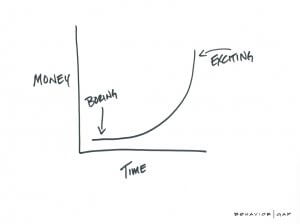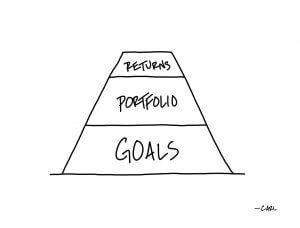
Elevators & Escalators
Investment ManagementDec 01, 2021
The S&P 500 fell 2.3% last Friday (11/26), and the market has been a bit choppy over the last few trading sessions based on concerns around the new Omicron Covid-19 variant. That was the first time the stock market was down more than 2% in a day since September, and before that it hadn’t happened since May. The financial media reacted predictably, with headlines in newspapers and the bottom lines of cable news channels blaring about the sell-off and focusing on the renewed unease. It’s almost like the immediate knee jerk reaction from many was something along the lines of “wait markets still go down?”.
We don’t know if this latest variant will be the be a serious cause for concern or something we barely even remember in two months. What we do know is that markets don’t like uncertainty. We also know that the stock market does indeed still go down, and people should not be surprised when it does.
For context, prior to Friday the S&P 500 was up over 27% for the year while the long-term annual average over the last 50 years is closer to 10%. This information helps reinforce three important points:
- There is little utility in headlines talking about daily market moves to make investment decisions. 2.3% doesn’t seem like as big a deal when you consider how much the market has climbed recently.
- At some point, things will revert closer to the long-term mean. It might not happen tomorrow (or any time soon for that matter), but your investment strategy should be built so you don’t have a panic attack if it did.
- For people gambling large portions of their assets on short-term speculative whims, taking more risk than they should, or assuming they’ll know when the inevitable correction is coming, that reversion would not be an enjoyable experience.
The bottom line is no one knows what the market is going to do in the short-term, and no one knows when it is going to do it (how many day traders and talking heads were discussing a new variant out of South Africa before last week?). There is an old Wall Street saying that comes to mind during these periods of increased volatility: “the market takes the escalator up and the elevator down” . In other words, throughout history while gains come slow and steady over time, the selloffs often happen quickly. The reason for the selloff will be different each time, and it will be something most people didn’t see coming (if they did it would have already been priced in and the market would shrug it off). If you stop playing the guessing game, the inevitable ride down will be a lot less stressful. Think the Tower of Terror ride at Disney World versus a department store with some nice elevator music.
Many financial planning strategies can serve to make your household balance sheet more durable in times of uncertainty and volatility. They might seem unnecessary when the market is going straight up, and you can make money speculating on seemingly anything. However, basing financial decisions off your portfolio’s performance in steady up markets versus planning so you can succeed in a wide range of environments is an approach that lands somewhere between silly and crazy. It’s like a homeowner spending their savings on a deal for a Christmas light display in September when their heating system doesn’t work well. It might seem like a good idea at the time, but it’s not going to be pleasant when the weather turns.


